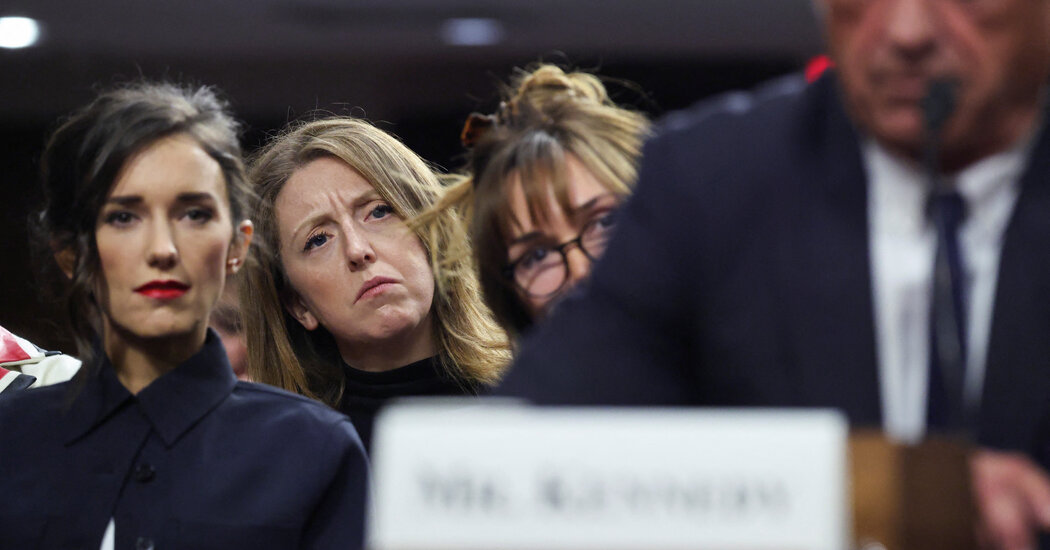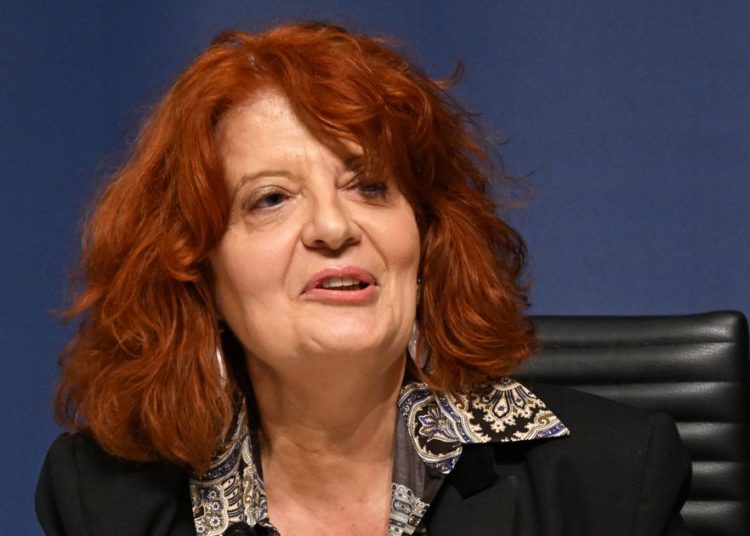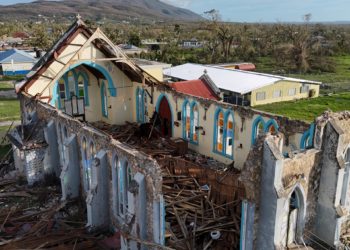Dr. Casey Means, President Trump’s nominee for surgeon general, graduated from the Stanford School of Medicine but abandoned her residency before completion, and has spent the past half-dozen years as a wellness influencer and tech company founder. She says she left medicine when she realized she was training to treat the complications of illness rather than the root causes.
“With a wall full of awards and honors for my clinical and research performance,” she writes in her book, “Good Energy,” “I walked out of the hospital and embarked on a journey to understand the real reasons why people get sick.”
As the nation’s top doctor, the surgeon general is meant to be a trusted voice guiding Americans on matters concerning their health, bolstered by professional credentials and experience. Dr. Means, whose Senate hearings for the position begin on Thursday, is a strange choice for the job. She is simultaneously boastful of her academic accomplishments and insistent on their uselessness. She references graduating at the top of her class at Stanford to establish her authority, only to then use that authority to argue that Stanford and institutions like it are fundamentally corrupt. She is an anti-expert expert, the doctor who believes doctors make people sicker. Her biography is typical of the leaders Robert F. Kennedy Jr., the secretary of health and human services, has elevated. In his eyes, this paradoxical relationship to expertise is exactly what qualifies her for the job.
“‘Trust the experts’ is not a feature of science or democracy; it’s a feature of religion and totalitarianism” is a maxim often repeated by Mr. Kennedy. Thus far, his efforts to oust the experts has more closely resembled regime change than democratization. Rather than attempt some novel way to honor diversity of opinion, Mr. Kennedy has simply shut one establishment out while creating another. He has installed a new ruling class at the Department of Health and Human Services and vested it with the authority to determine what ought to count as fact.
When faced with the possibility of dissent from within his ranks, he fires people, as he did with Dr. Susan Monarez, whom he appointed to head the Centers for Disease Control and Prevention, only to dismiss her when she told him she would not approve his handpicked advisory committee’s recommended changes to the vaccine schedule.
His new establishment — including Dr. Jay Bhattacharya at the National Institutes of Health, Dr. Marty Makary at the Food and Drug Administration and others — nonetheless leans heavily on signifiers of conventional prestige for legitimacy. When reporters and scientists questioned the Trump administration’s recent effort to link Tylenol and autism, administration leaders and defenders emphasized that one of the studies they relied on was conducted by a dean at Harvard (who, it turned out, had been paid to testify in lawsuits against the makers of Tylenol).
In a chapter in her book titled “Trust Yourself, Not Your Doctor,” Dr. Means writes that “when it comes to preventing and managing chronic disease, you should not trust the medical system” (emphasis hers). She believes Americans need to lean into lifestyle changes to stop the chronic disease epidemic: whole-food diets free of added sugar and seed oils, frequent exercise, consistent sleep, decreased exposure to toxins. Should she be confirmed, her interest in “metabolic health” — how the body turns fuel into energy — is likely to be a significant focus of her work.
Dr. Means is right to criticize conventional medicine for demonstrating insufficient curiosity about the roles that diet and environmental factors play in making us sick. I dispute, however, her claims about the precise relationship between healthy habits and cell function. “Our modern diets and lifestyles are synergistically ravaging our mitochondria” is a characteristically berserk, science-ish statement intended to suggest Dr. Means is speaking in the realm of fact rather than hypothesis.
Above all, I reject Dr. Means’s insistence that modern medicine has no role to play in preventing, managing and helping reverse chronic disease. It’s rigid, dogmatic and untrue. It also strikes me as deeply counterproductive.
Dr. Means could build a big, diverse tent filled with people eager to tackle her stated priority: the relationship between the food system, the American diet, metabolism and chronic illness. Instead, her intense anti-medicine skepticism forecloses meaningful discourse with people who do not entirely agree with her.
That’s too bad, because an approach that challenged mainstream theories without insisting on their essential rottenness might gain a lot of purchase. There are countless examples of paradigm shifts in medicine pushed by rebels who believed the field was thinking about things the wrong way. Expert culture within health care actually can be confronted with its arrogance, and forced to change. It happens a lot; it’s how the field evolves.
One recent evolution is of special relevance to both Dr. Means and me. She opens her book with the story of her mother, who died of pancreatic cancer. A few chapters later, Dr. Means describes an interaction her family had with oncologists who recommended her mother consider treatments that might extend her life by a few months, but could also introduce new complications or even hasten her death. The Means family, in accordance with their mother’s wishes, opted to forgo those treatments and instead take her home to spend their final days together.
Dr. Means was, of course, deeply affected by this event. She took the entire episode as evidence that the health care system was essentially broken.
I am a palliative care doctor. I work with patients with serious illness who, like the Means family, must make difficult decisions based on what matters most to them. Dr. Means, who trained later in medicine than I did, would have known that palliative care exists for the purpose of supporting families like hers. Palliative care is only decades old, but it has transformed the culture of medicine by insisting that there are concerns beyond shrinking tumors that should inform treatment plans, such as patients’ suffering and agency around what happens to their bodies.
This change happened because of pressures from within medicine and outside it. It has been, to borrow Mr. Kennedy’s ideals, both scientific and democratic. There are plenty of other stories of how science and medicine have changed in the face of new ideas. A surgeon general or health secretary who cared sincerely about challenging a “trust the experts” paradigm might look at this recent history and take interest in it. Make America Healthy Again thinking, a focus on metabolic health, alternative approaches to tackling high blood pressure and diabetes: There’s room for all of it alongside our current disease treatments.
Each surgeon general gets to decide her or his own agenda and how to communicate it to the American people. The most recent surgeon general highlighted such unconventional topics as loneliness and parental burnout. The role is something of a doctor-influencer in chief, and it is well suited to disrupters with big ideas. At this moment, when trust in public health and science is falling, we need disruption. We need leadership with new ideas and the humility to know that Americans hold diverse perspectives on how they want to take care of their bodies.
Dr. Means is not that leader. She and Mr. Kennedy do not intend to democratize science; they want to replace what they describe as one set of orthodoxies with another, with the fervor of manifest destiny crossed with a revenge plot. Their ascent signals that the experts in charge have been switched out for contrarians and dropouts, who continue to trumpet their credentials even as they seek to dismantle the system that awarded them.
Rachael Bedard is a geriatrician and a palliative care doctor.
The Times is committed to publishing a diversity of letters to the editor. We’d like to hear what you think about this or any of our articles. Here are some tips. And here’s our email: [email protected].
Follow the New York Times Opinion section on Facebook, Instagram, TikTok, Bluesky, WhatsApp and Threads.
The post The Doctor Who Hates Medicine appeared first on New York Times.




